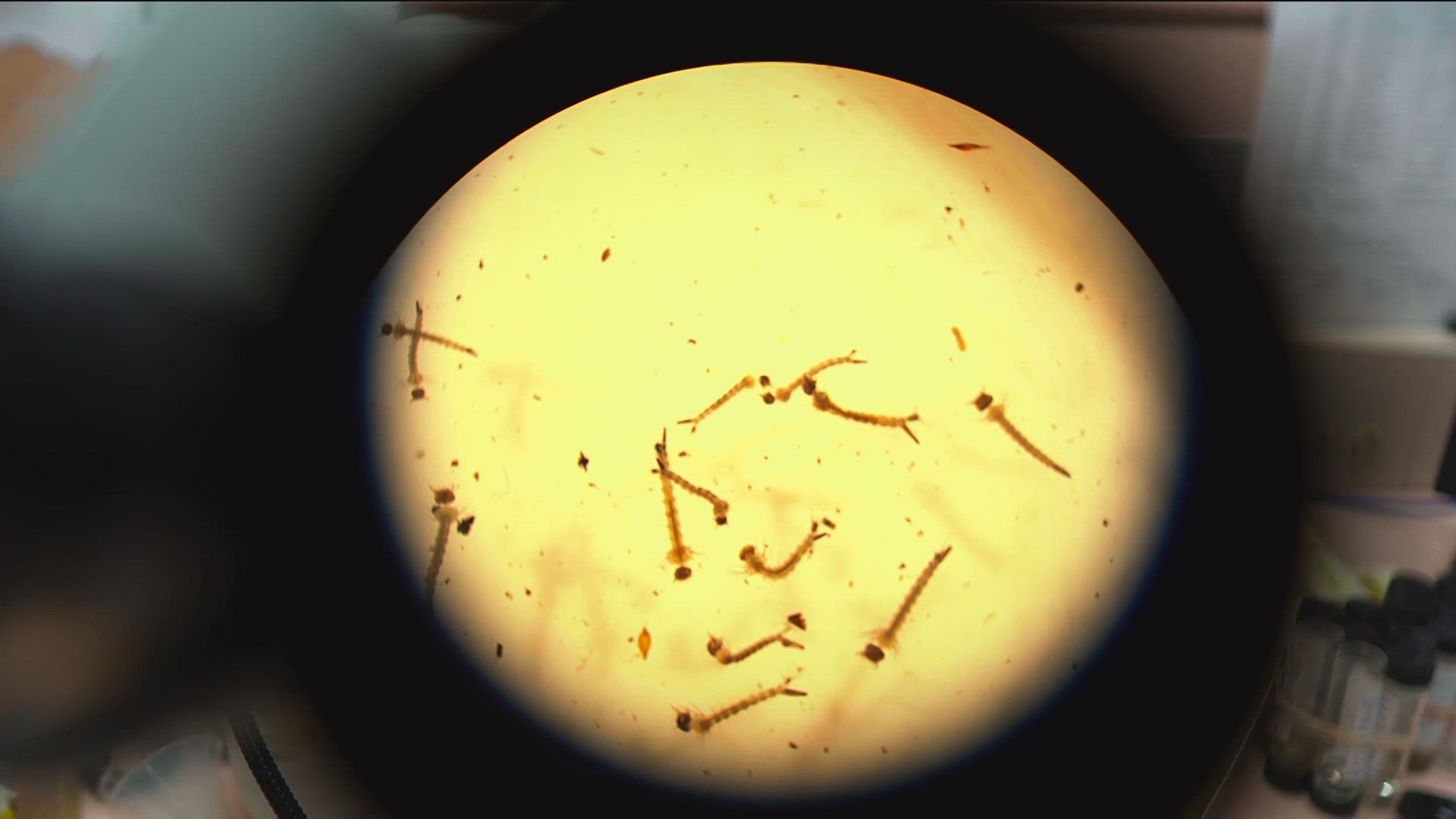MINNESOTA, USA — It's that time of year again, Minnesota's unofficial state bird is making its annual reappearance and crews are already out spraying the insects.
The Metropolitan Mosquito Control District (MMCD) said its mosquito season is starting three weeks early this year.
“We were thinking that we might have to start even earlier this year with the weather we saw in February, but then it got colder again and the snow came and it became a more normal year for us,” MMCD spokesman Alex Carlson said.
This year MMCD has hired around 190 seasonal staff to help them manage mosquitos in the Twin Cities metro.
That number includes about 170 field staff who go out into wetlands to collect samples from swamps, marshes and ponds.
Those samples are brought to the MMCD lab in Saint Paul where a team of six lab technicians analyze every sample.
Based on those readings MMCD will decide which areas require treatment.
“If we’re seeing enough mosquitos in an area we can send out our helicopter to drop treatment into that area,” Carlson explains.
The treatment is a granular pellet that the mosquito larva eat.
Shortly after eating the pellets the mosquitos die in the water before they can grow into adults.
Carlson says field crews are seeing a lot of larva right now, but Minnesotans still have a few swat-free nights before the larva grow into adults.
"You're going to see more and more coming out of the water in the coming weeks, but probably another month before they really start hatching,” Carlson says.
If everything goes as planned Carlson says we should see fewer mosquitos this summer thanks to the milder winter.
"Compared to last year it's probably not going to be as bad, because we had so much snow last winter and there was just a ton of stagnant water and the snow-melt mosquitoes were really abundant,” Carlson explains.
But rarely does everything go as planned.
A lot of rain could change everything.
In the meantime, field crews will be out collecting samples and the helicopters standing by ready to fly.
"We're trying to make sure we can be as productive as possible with getting materials in where it needs to be.”
Watch more local news:
Watch the latest local news from the Twin Cities and across Minnesota in our YouTube playlist:

